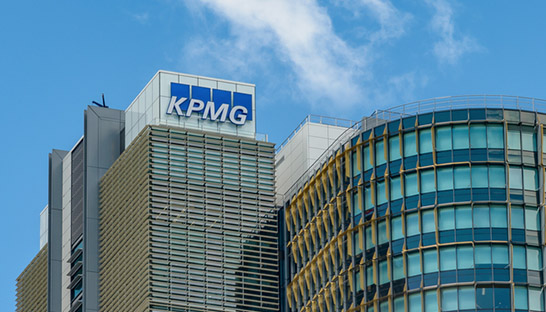KPMG, a global firm that provides audit, tax and advisory services, also raised issues with the timing of the 0.5 percent cybersecurity levy by the federal government, saying it is ill-timed under the current economic realities.
KPMG stated that although the idea was not new, it was unjustified under the prevailing economic conditions, given the squeezing effect the current reforms were already having.
KPMG said no country could tax itself to prosperity. It stressed that higher taxes did not lead to sustainable growth. He also warned against unintended consequences of the policy.
KPMG disclosed that the levy was not limited to financial institutions but also payable by GSM service providers and all telecommunication companies, internet service providers, insurance companies and the Nigerian Stock Exchange.
It hinted that the regulators of these other businesses might issue their implementation guidelines soon.
KPMG stated, “Undoubtedly, Nigeria faces significant revenue challenge. This has, therefore, constrained, and continues to constrain, the country’s capacity for achieving sustainable growth. Given this context, government may go to any length to mobilise the required revenue.
“However, research has shown that higher taxes do not lead to sustainable growth. In fact, no country can tax itself to prosperity. Perhaps, it is in recognition of this that the current administration and the Presidential Committee on Fiscal Reforms have often emphasised that the government will not introduce new taxes.
“Though the cybercrime levy is not new as it has been in existence since 2015, the question is why implement it now given the prevailing economic challenges? The timing of any reforms is essential to the success of such reforms. This underscores the current public resistance to the implementation of the levy.
“This is certainly not the right time to implement this levy. Hopefully, the National Insurance Commission (NAICOM) and the Nigerian Communications Commission (NCC) will consider this before introducing their own guidelines with respect to those businesses under their purview.”
KPMG reckoned that the key objective of the cybercrime levy was to ensure that there was dedicated and adequate funding available to address the growing threats of cyber-attacks. This, it said, explained why some countries had implemented various forms of cybersecurity levies to fund cyber security initiatives.
It emphasised that consideration must be given to the country’s prevailing economic conditions.
KPMG stated, “The current economic climate does not justify its implementation now.”
It added that although various reports had indicated that the government would raise about N3 trillion annually from the levy, there was no formal presentation to the public of the cost and benefit analysis.
KPMG observed that it was always critical that the enactment of any tax or levy be accompanied by the tax expenditure statement to provide information as to whether the benefits of such tax or levy outweighed its cost.
The firm stated, “It is not sufficient to provide only the revenue projection, which is not certain as no details have been provided with respect to this; albeit there have been reports on how the money would be spent.
“Under the enabling Act, the Office of the National Security Adviser will be responsible for administering the fund. Though the Act provides that the fund shall be audited in accordance with guidelines issued by the Auditor General of the Federation, this does not provide enough comfort.
“There are many government agencies that have not been audited for years and nothing has happened. It is, therefore, critical that practical measures be put in place to ensure transparency and accountability.”
One key question that the implementation of the levy triggered, the firm said, was whether Nigeria was back to the era of cheque transactions since they did not qualify as electronic transfers under the enabling Act.
According to KPMG, businesses may resort to any measures to avoid the payment of the levy.
The global tax advisory firm said, “This is why unintended consequences of any measure must be adequately evaluated before implementation. A related question is how the implementation of this levy will contribute to financial inclusion in the light of the financial burden that customers of financial institutions will experience.
“Hopefully, government will reconsider delaying the implementation of the levy, which has been in the books since 2015! Government should focus on tax reforms that address revenue leakages and be financially prudent in the utilisation of public fund.
“Combining revenue-raising initiatives with responsible spending practices is essential for fiscal sustainability. It is also important that government considers phasing in tax reforms on a gradual basis to minimise potential shocks to the economy.”














